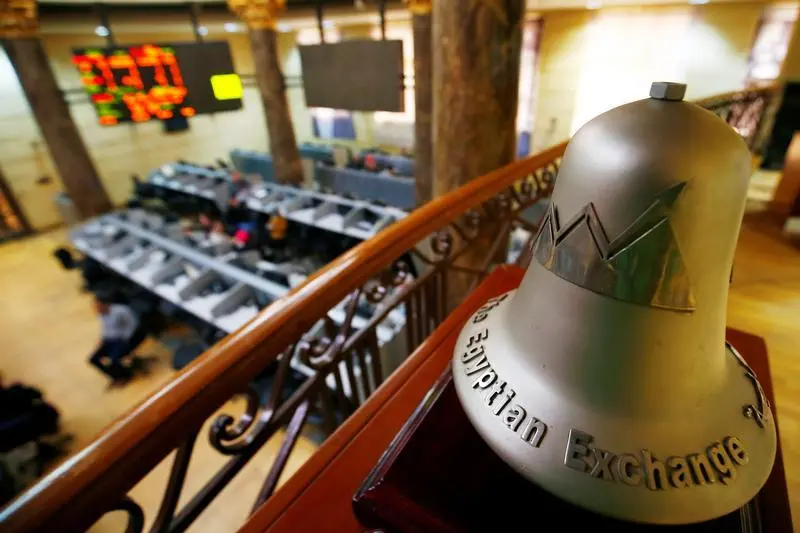PHOTO
“Since 2016 no developing market has pushed tougher fiscal reforms than Egypt,” the report highlighted. This is one of the reasons why Egypt’s stock market is ranked third in the MSCI Emerging Markets Index, which measures equity market performance in global emerging markets. According to the index, Egypt rose by 39% Year on Year (YoY) in 2019, placing the country after Russia and Greece.
Moreover, Egypt similarly advanced six places on the World Bank’s Doing Business 2020 list, ranking 114th out of 190 countries. This is mainly attributed to the country’s regulatory reforms that facilitated doing business in terms of starting a business, getting electricity, protecting minority investors, and tax payments.
Furthermore, the country remained the top recipient of foreign direct investment in Africa in 2019, with inflows rising 11% YoY to reach $9 billion, according to UNCTAD’s 2020 World Investment Report.
The other side of the equation
That said, Egypt still needs further improvements in some areas such as transferability, stock lending, short selling, and stability of institutional framework, according to the MSCI 2020 Global Market Accessibility Review, a detailed assessment of the accessibility of markets based on set criteria.
This includes openness to foreign ownership, ease of capital inflows and outflows, the efficiency of the operational framework, availability of investment instruments, and stability of the institutional framework.
The report further explains that despite the government’s efforts since 2016 to modernize and reduce barriers on means of foreign investment, as well as how international companies can operate within the country’s borders, there are still some obstacles hurdling more inflows of foreign investments.
One noted point addresses the limitations of foreign ownership of companies, which affect between 3% and 10% of the Egyptian market.
The report goes on to provide examples, namely, the country’s landline monopoly holder Telecom Egypt which caps foreign ownership at 20%. The MSCI report referred that this reflects an absence of clarity in certain areas of market regulation.
In November 2019, a new decree was issued to limit the ownership of foreigners in private schools, and schools applying an international curriculum in Egypt, to 20%.
In the same year, the Minister of Trade and Industry issued a decree amending the Executive Regulations of the Commercial Agency and Brokerage Law No. 120 for 1982. Under the new amendments, foreign-owned real estate brokerage companies are no longer allowed to carrying out their work in Egypt.
Apart from this, foreign investors are not relishing full equal rights in the country; companies’ related information is not always available in English. Repatriation costs via the repatriation mechanism are also relatively high.
Additionally, there is a lack of robustness and enforcement of local accounting standards. The country does not have a functioning nominee status and omnibus structures are not available. Meanwhile, overdraft facilities are prohibited.
For the country’s offshore currency market, “liquidity on the onshore currency market has improved following the flotation of the Egyptian pound in November 2016 but has remained relatively low,” according to the report.
Other Considerations
Stock brokers are facing a limited level of competition which can lead to relatively higher trading costs, according to MSCI.
For transferability, in-kind and off-exchange transfers are prohibited. Although stock lending and short selling are allowed, they are not established as market practices due to their limited capacity.
The MSCI report noted that there have been instances of government interventions that challenged the stability of the “free market” economy as illustrated by frequently changing market regulations.
Outlook
Continued structural program in Egypt in terms of private sector development is expected to encourage growth-enhancing structural reforms. But success is contingent upon a sustained commitment to reforms, according to the World Bank’s June 2020 Global Economic Prospects report.
By the same token, Egypt may outperform as it reaffirmed its commitments to tax and civil service reforms and maintained access to the International Monetary Fund’s (IMF) program funding, according to a Financial Times’ (FT) June article titled “Investors Should Not Shrink from Frontier Emerging Markets.”
According to the article, the country proved its commitment to reform by not only obtaining the IMF’s easy money through the Rapid Financing Instrument but also committing to a newly funded Standby Arrangement.
This, coupled with large reserve buffers and access to the Eurobond market, should help Egypt make up for the fall in foreign inflows amid weaker tourism and remittances, and retain foreign portfolio investment in the local debt markets, FT highlighted.
In a nutshell, Egypt is seen well-positioned to be an outperformer within MSCI emerging markets, based on the conclusion of a June article titled “Egypt Market Update: Current Valuation Does Not Reflect Egypt's Macro Resilience” by the crowd-sourced content service provider Seeking Alpha. The country is expected to avoid a recession as global growth declines, the article elucidated.
Copyright © 2020 Arab Finance Brokerage Company All rights reserved. Provided by SyndiGate Media Inc. (Syndigate.info).





















